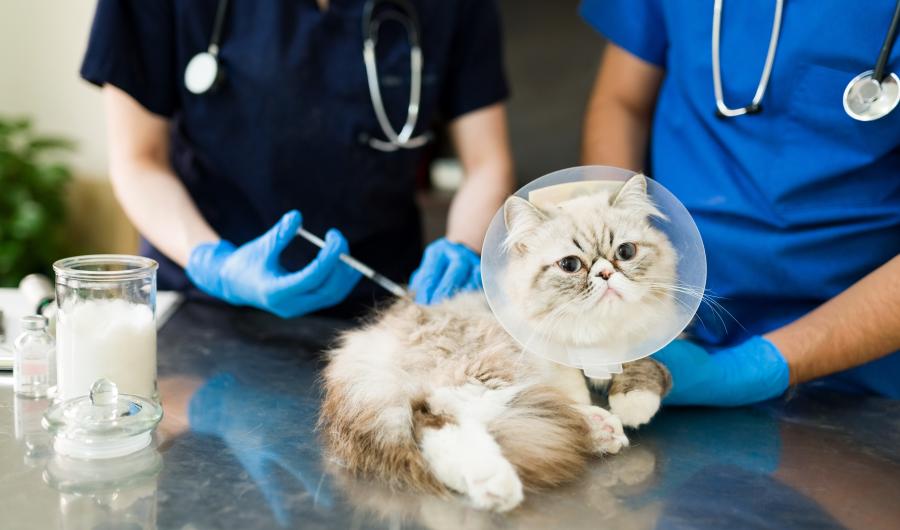
Veterinary Nursing
Is your dream to work with pets? Through theory and practice, you will learn to collaborate with people and pets, in the examination and treatment of animals.
Programme description
Career opportunities
1. Higher education entrance qualification
2. Special admission requirements for BSc in Biology
3. English language proficiency
4. Financial capacity - non-EU/EEA applicants
View general admission and documentation requirements
View FAQs about admission, credit transfer, scholarships/financing and result of admission
Have you thought of exchanging to another part of the world? We highly recommend our students to spend part of their degree at one of our partner institutions abroad. An exchange will compliment your degree best as an international internship period in the 6. semester or on an academic level in the 6. semester.
We have dedicated staff who will do their best to help you with your stay abroad. For more information on the process, please contact Jose de Pool, advisor for study exchange.
The programme qualifies graduates to apply for admission to Master in biosciences at the Faculty of Biosciences and Aquaculture. Contact an advisor at the faculty for guidance in selecting appropriate elective courses to qualify for admission to the master programme.
There are also other relevant master studies in Norway and abroad. Please contact the specific university directly for information about admission and requirements.
Upon successful completion of this programme, the student is expected to possess the following knowledge, skills and general competences:
Knowledge
The candidate
- has broad knowledge of the anatomy and physiology of animals, their natural behaviour and needs, as well as diseases, treatment and care
- has knowledge of the basic cultural, legal, and economic factors in the field where veterinary nurses operate
- knows clinical procedures and tools used in small animal clinics to ensure good animal welfare
- knows relevant scientific research and development in the field of veterinary nursing
- can understand and explain veterinary medical terminology
- can update his/her own knowledge in veterinary nursing from key textbooks, and has the ability to find new valid sources
- has knowledge of the profession of veterinary nursings origins, history, traditions, uniqueness and place in today's society.
Skills
The candidate
- can apply professional knowledge to practical and theoretical issues, and make profesionally justified decisions when nursing and monitoring patients
- can communicate appropriately with pet owners in different situations
- can reflect on his/hers work, and adjust based on professional feedback and guidance
- can find, evaluate and disseminate litterature within the field of veterinary medicine and animal welfare.
- can communicate and disseminate litterature to colleagues and pet owners, both in writing and orally
- has relevant practical skills within the basic clinical procedures in concern to animal welfare and HSE.
General competence
The candidate
- has insight into professional, legal and ethical issues related to the profession as an awarded veterinary nurse
- can plan, carry out and present work (practical skills, theoretical reviews, written assignments) both alone and in collaboration with others in line with the professional ethics guidelines of NDAF* and Norwegian legislation
- can communicate central topics and problems, as well as suggest possible solutions to colleagues and pet owners. Both orally, in writing and by other suitable means of expression.
- can exchange experiences and views with others within the field of veterinary nursing, and thus contribute to developing and establishing good practices and good animal welfare
- is familiar about scientific research and development whitin the fields of animal welfare and veterinary nursing, especially concerning the need and welfare of animals in various work-related situations
*Norsk dyrepleier og assistenforening (NDAF) is a Norwegian association for veterinary nurses/ technicians or assistants at veterinary clinics.
In addition to the semester fee and syllabus literature, students are expected to have a laptop with microphone and camera. Students must purchase their own laboratory coat and scrubs for use in some courses.
In addition, students must expect costs related to travel, vaccinations, clinical work clothes and accomodation during practice periods.



